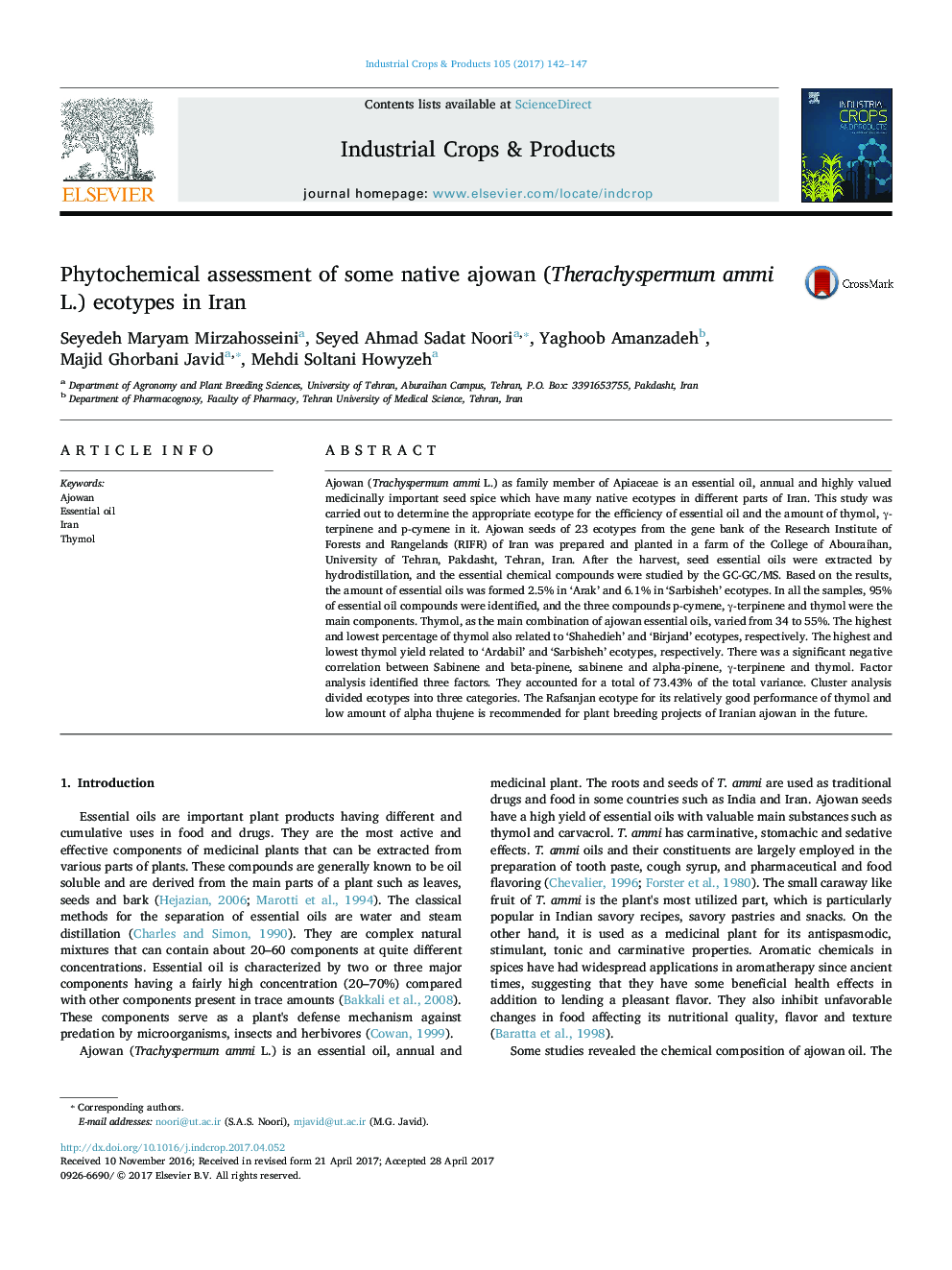| Article ID | Journal | Published Year | Pages | File Type |
|---|---|---|---|---|
| 5762106 | Industrial Crops and Products | 2017 | 6 Pages |
Abstract
Ajowan (Trachyspermum ammi L.) as family member of Apiaceae is an essential oil, annual and highly valued medicinally important seed spice which have many native ecotypes in different parts of Iran. This study was carried out to determine the appropriate ecotype for the efficiency of essential oil and the amount of thymol, γ-terpinene and p-cymene in it. Ajowan seeds of 23 ecotypes from the gene bank of the Research Institute of Forests and Rangelands (RIFR) of Iran was prepared and planted in a farm of the College of Abouraihan, University of Tehran, Pakdasht, Tehran, Iran. After the harvest, seed essential oils were extracted by hydrodistillation, and the essential chemical compounds were studied by the GC-GC/MS. Based on the results, the amount of essential oils was formed 2.5% in 'Arak' and 6.1% in 'Sarbisheh' ecotypes. In all the samples, 95% of essential oil compounds were identified, and the three compounds p-cymene, γ-terpinene and thymol were the main components. Thymol, as the main combination of ajowan essential oils, varied from 34 to 55%. The highest and lowest percentage of thymol also related to 'Shahedieh' and 'Birjand' ecotypes, respectively. The highest and lowest thymol yield related to 'Ardabil' and 'Sarbisheh' ecotypes, respectively. There was a significant negative correlation between Sabinene and beta-pinene, sabinene and alpha-pinene, γ-terpinene and thymol. Factor analysis identified three factors. They accounted for a total of 73.43% of the total variance. Cluster analysis divided ecotypes into three categories. The Rafsanjan ecotype for its relatively good performance of thymol and low amount of alpha thujene is recommended for plant breeding projects of Iranian ajowan in the future.
Keywords
Related Topics
Life Sciences
Agricultural and Biological Sciences
Agronomy and Crop Science
Authors
Seyedeh Maryam Mirzahosseini, Seyed Ahmad Sadat Noori, Yaghoob Amanzadeh, Majid Ghorbani Javid, Mehdi Soltani Howyzeh,
